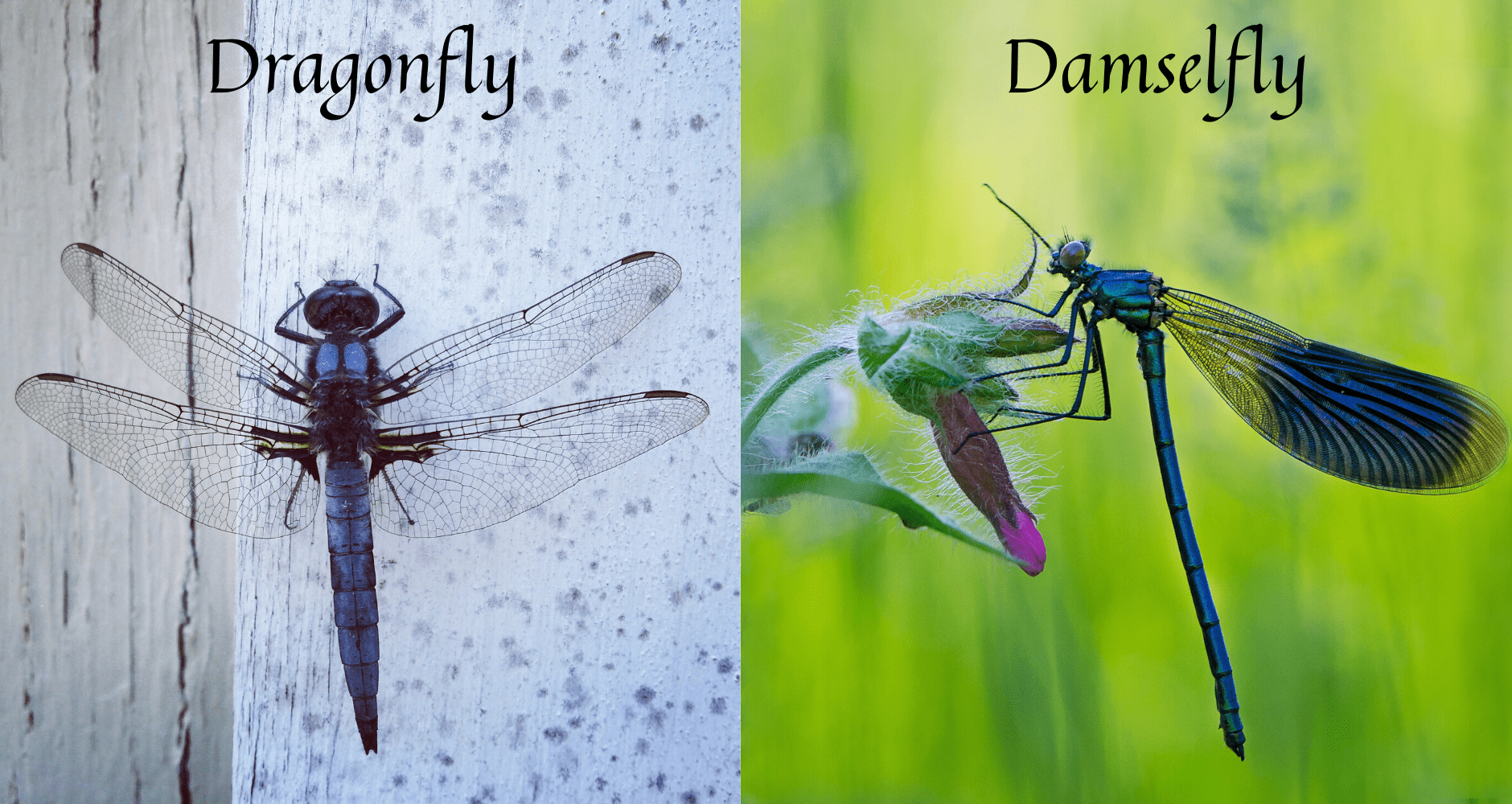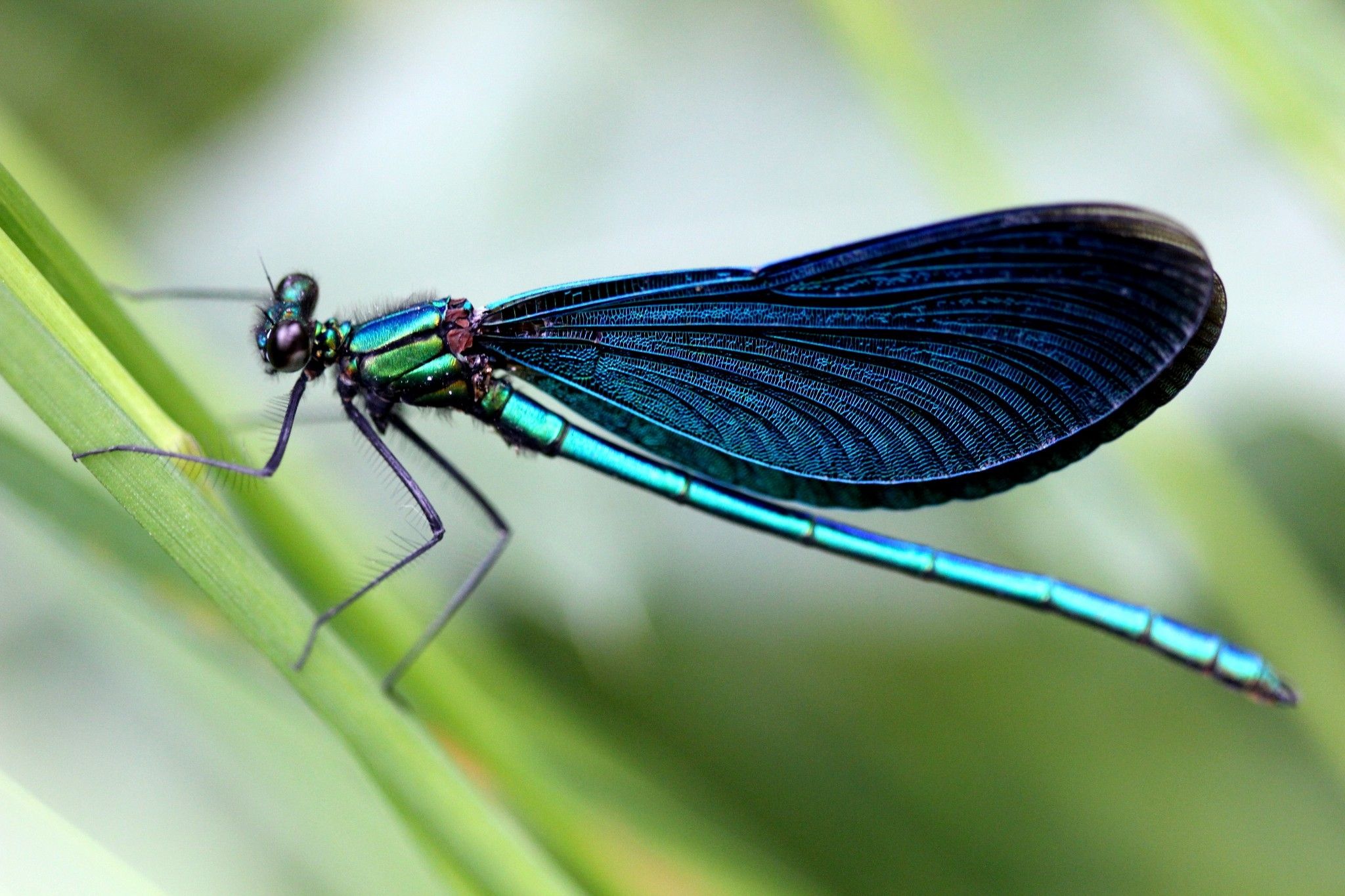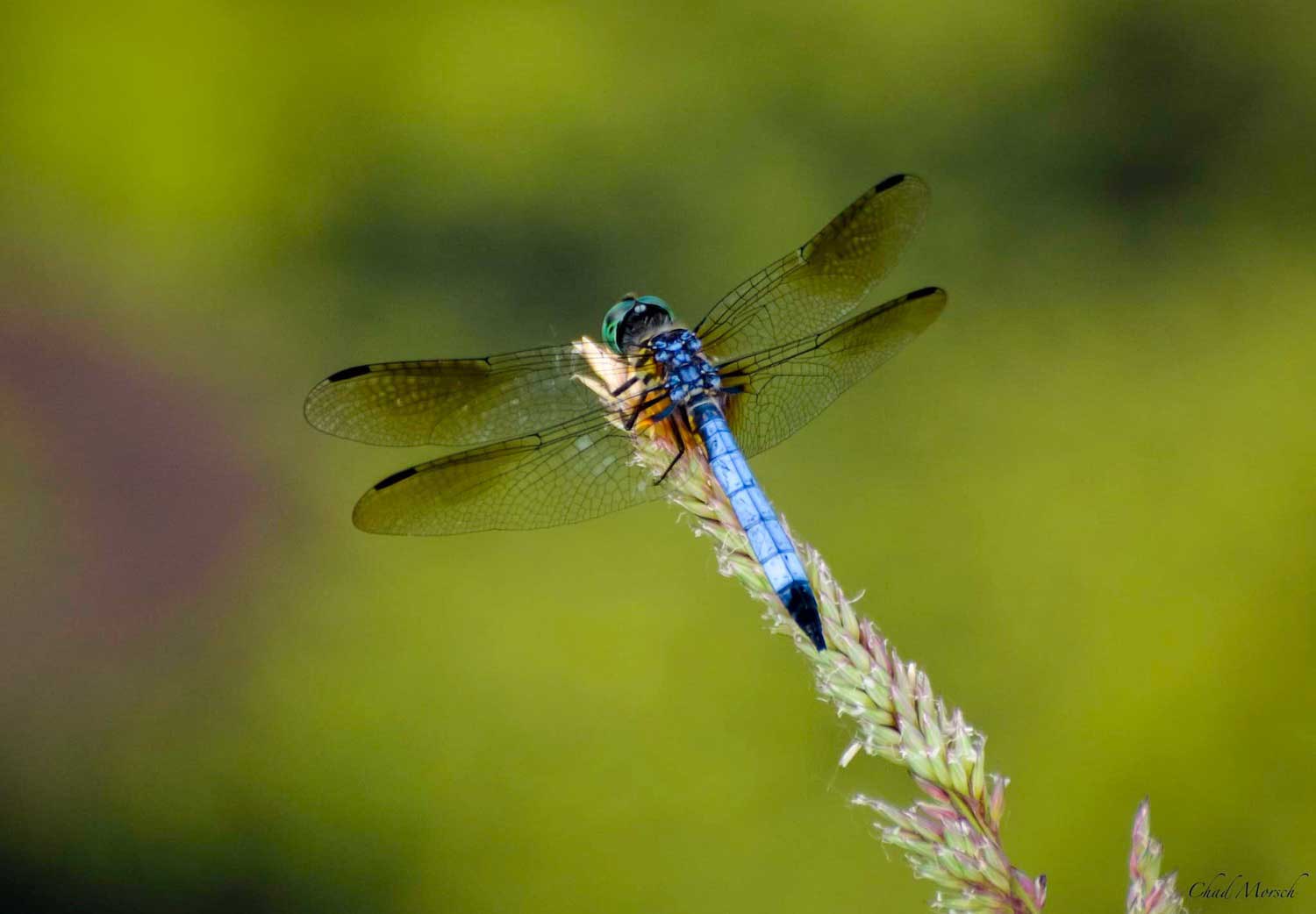Dragonflies can eat hundreds of mosquitoes each day, making them effective natural predators for mosquito control. Their predatory behavior helps reduce mosquito populations and adds beauty to outdoor spaces.
Dragonflies are attracted to standing water, such as lakes or ponds, where they can find ample prey. By encouraging dragonflies in your yard, you can help create a more mosquito-free environment while enjoying the sight of these fascinating insects. Their ability to consume large numbers of mosquitoes makes them valuable allies in maintaining a balanced ecosystem.
So, next time you spot a dragonfly, appreciate its role in keeping mosquito populations in check and enhancing the natural beauty of your surroundings.

Credit: www.pinterest.com
Dragonfly Diets: Aerial Assassins Of Mosquitoes
The Dragonfly’s Hunting Strategy
Dragonflies are skilled aerial hunters, using their exceptional flying abilities to catch their prey on the wing. They are agile and swift, able to maneuver with precision to capture mosquitoes in mid-air.
Mosquitoes: A Favorite Prey
- Dragonflies are natural predators for mosquitoes.
- They consume mosquitoes at all stages of life.
- One dragonfly can eat hundreds of mosquitoes daily.
Not only are dragonflies efficient mosquito hunters, but they also add beauty and grace to any outdoor space. Watching them dart and hover around the yard can be a delightful experience for nature enthusiasts.
Daily Intake: How Many Mosquitoes Do They Devour?
Dragonflies are natural predators for mosquitoes, capable of consuming hundreds of them each day. They are effective at controlling mosquito populations and can be a beautiful addition to any yard. By attracting dragonflies, you can help keep your outdoor space mosquito-free in a natural and eco-friendly way.
Counting The Casualties: Mosquitoes Per Day
Dragonflies are not just fascinating creatures to observe, but they also serve as natural mosquito control. These aerial acrobats have an insatiable appetite for mosquitoes and can consume a significant number of them in a single day. But just how many mosquitoes do dragonflies devour? Let’s take a closer look at the daily intake of these voracious predators.Factors Influencing Dragonfly Appetite
Several factors come into play when determining the number of mosquitoes a dragonfly can consume in a day. These factors include:1. Species: Different species of dragonflies have varying feeding habits and preferences. Some species are more efficient mosquito hunters than others, resulting in higher mosquito intake.2. Size and Age: Larger dragonflies tend to have a greater appetite and can consume more mosquitoes compared to their smaller counterparts. Additionally, older dragonflies have more experience in hunting and may have developed better hunting techniques, leading to higher mosquito consumption.3. Environmental Conditions: The availability of suitable hunting grounds and the presence of mosquito populations play a significant role in a dragonfly’s daily intake. Areas with high mosquito densities provide dragonflies with ample opportunities to feast on these pesky insects.4. Climate and Season: Dragonfly activity and mosquito populations can vary depending on the climate and season. Warmer weather and humid conditions generally favor both dragonfly and mosquito populations, leading to higher mosquito consumption.5. Time of Day: Dragonflies are most active during daylight hours, particularly in the early morning and late afternoon. These are the times when mosquitoes are also more active, increasing the chances of encounters between the two.While it is challenging to determine the exact number of mosquitoes a dragonfly consumes in a day, studies estimate that an individual dragonfly can devour hundreds of mosquitoes daily. This impressive feat makes dragonflies a valuable asset in natural mosquito control, helping to reduce mosquito populations and minimize the risk of mosquito-borne diseases.In conclusion, dragonflies are formidable mosquito hunters, with their daily intake of mosquitoes influenced by factors such as species, size, age, environmental conditions, climate, season, and time of day. Harnessing the power of dragonflies in mosquito control can be beneficial for creating a more mosquito-free environment.Lifecycle Feeding: From Nymph To Adult
When it comes to the lifecycle feeding of dragonflies, from nymph to adult, it’s a fascinating journey of transformation and adaptation. Let’s explore the stages of their development and how they contribute to controlling mosquito populations.
Aquatic Hunters: The Nymph Stage
During the nymph stage, which can last for several months to a few years, dragonflies are aquatic hunters. They live in freshwater habitats such as ponds, lakes, and streams, preying on mosquito larvae and other aquatic insects. The nymphs are equipped with extendable jaws that shoot out to snatch their prey, making them efficient hunters in the water.
The Adult Dragonfly: Sky Predator
As adult dragonflies emerge from the water, they transform into skilled predators of the sky. With their exceptional flying abilities, they hunt down flying insects, including adult mosquitoes. A single dragonfly can consume hundreds of mosquitoes in a day, making them valuable allies in keeping mosquito populations in check.

Credit: www.farmersalmanac.com
Environmental Impact: Dragonflies As Pest Control
Dragonflies serve as natural predators for mosquitoes, consuming hundreds of them daily. Their presence is not only beneficial for pest control but also adds beauty to the environment. Observing dragonflies in action can be a delightful experience in your yard.
Natural Mosquito Management
Dragonflies are not only fascinating creatures but also serve as effective natural pest control agents, particularly when it comes to managing mosquito populations. These agile and voracious predators are known to feast on mosquitoes at all stages of their life cycle, making them an invaluable asset in the fight against these pesky bloodsuckers.Biodiversity Benefits
The environmental impact of dragonflies as mosquito predators goes beyond just controlling mosquito populations. Their presence in ecosystems brings about various biodiversity benefits. By preying on mosquitoes, dragonflies help to maintain a balance in the insect population, preventing outbreaks and reducing the risk of mosquito-borne diseases. This, in turn, promotes a healthier ecosystem for other organisms that rely on a diverse range of insects for food.Html Syntax For Headings:
Natural Mosquito Management
Biodiversity Benefits
Attracting Dragonflies: Creating A Mosquito-free Yard
Dragonflies are natural predators for mosquitoes, consuming hundreds of them daily. To attract these beneficial insects to your yard, focus on creating an environment that is conducive to their presence.
Water Features: Dragonflies’ Breeding Grounds
Dragonflies breed in water, making water features like ponds or birdbaths attractive to them. Ensure the water is clean and free-flowing to encourage dragonflies to inhabit your yard.
Plants That Entice Dragonflies
Plant species like water lilies, rushes, and sedges attract dragonflies as they provide suitable habitats for their larvae. Incorporating these plants in your yard can help in attracting dragonflies and maintaining a mosquito-free environment.

Credit: www.housebeautiful.com
Observing Dragonflies: The Joy Of Backyard Ecology
Identifying Dragonfly Species
If you’re eager to observe dragonflies in your backyard, it’s essential to identify the different species. Look for characteristics such as body color, wing patterns, and size. Common species include the blue dasher, eastern pondhawk, and widow skimmer.
Tips For Dragonfly Watching
To enhance your dragonfly watching experience, consider planting native vegetation, such as water lilies and cattails, to attract these fascinating insects. Additionally, create a water feature in your yard, as dragonflies are drawn to standing water for reproduction. Position yourself near their habitat and observe their graceful flight patterns as they hunt for prey.
Dragonflies are known to be voracious predators, particularly when it comes to mosquitoes. They are capable of consuming hundreds of mosquitoes each day, making them valuable allies in controlling mosquito populations.
Myths Vs. Facts: Understanding Dragonfly Appetite
Dragonflies are natural predators for mosquitoes and can consume hundreds of them each day at all stages of their life. They are not only effective in mosquito control, but also a beautiful addition to any yard.
Myths vs. Facts: Understanding Dragonfly AppetiteDragonflies are natural predators of mosquitoes, but just how many mosquitoes can a dragonfly eat? There are many myths and exaggerations regarding dragonfly diets, so it’s essential to understand the scientific facts behind their appetite. In this section, we’ll debunk some of these myths and provide insights into the actual diet of dragonflies.Debunking ExaggerationsOne common exaggeration is that dragonflies can eat thousands of mosquitoes per day. While it’s true that they are efficient predators, they cannot consume such a significant number of mosquitoes. According to scientific studies, an adult dragonfly can consume up to 100 mosquitoes per day, which is still an impressive feat. However, it’s essential to remember that dragonflies also consume other insects such as flies, gnats, and midges.Scientific Insights into Dragonfly DietsDragonflies are opportunistic predators, meaning they will consume any insect that is easily accessible. However, their diet varies depending on their life stage. During their larval stage, dragonflies primarily feed on aquatic insects such as mosquito larvae, small fish, and tadpoles. As adults, they focus more on flying insects such as mosquitoes, flies, and moths. The diet of adult dragonflies also varies depending on their species and habitat.It’s worth noting that dragonflies do not solely rely on mosquitoes for their survival. While they are an important part of their diet, dragonflies can survive without mosquitoes. They will consume other insects if mosquitoes are not available.In conclusion, dragonflies are efficient predators of mosquitoes, but they cannot consume thousands of mosquitoes per day. Their diet varies depending on their life stage and habitat, and they can survive without mosquitoes. By understanding the scientific facts behind their appetite, we can appreciate the important role that dragonflies play in our ecosystem.Conservation Efforts: Protecting Dragonfly Habitats
Dragonflies are natural predators for mosquitoes, consuming them at all stages of life. An individual dragonfly can eat hundreds of mosquitoes each day, making them an effective and beautiful form of mosquito control in habitats where they thrive.
Threats To Dragonfly Populations
Dragonflies are not only important for controlling mosquito populations, but they also serve as indicators of the health of aquatic ecosystems. Unfortunately, dragonfly populations are threatened by habitat loss, pollution, and climate change. As wetlands and other aquatic habitats are destroyed or degraded, dragonflies lose their breeding and feeding grounds. Additionally, pesticides and other pollutants can contaminate the water and harm dragonflies and their prey. Climate change can also have a negative impact on dragonfly populations, as it alters the timing of their life cycle and disrupts their migration patterns.How You Can Help
As individuals, there are several actions we can take to protect dragonfly habitats and promote their conservation. One way to help is by reducing our use of pesticides and other harmful chemicals that can contaminate the water and harm dragonflies and their prey. We can also support conservation efforts by donating to organizations that work to protect wetlands and other aquatic habitats. Additionally, we can create dragonfly-friendly habitats in our own backyards by planting native vegetation and providing sources of clean water for dragonflies to breed and feed.Another way to help is by participating in citizen science projects that monitor dragonfly populations and track changes in their distribution and abundance. These projects provide valuable data that can help researchers better understand the threats facing dragonflies and develop effective conservation strategies.In Conclusion
Dragonflies play a crucial role in controlling mosquito populations and are important indicators of the health of aquatic ecosystems. However, their populations are threatened by habitat loss, pollution, and climate change. As individuals, we can take action to protect dragonfly habitats and promote their conservation by reducing our use of harmful chemicals, supporting conservation efforts, creating dragonfly-friendly habitats in our backyards, and participating in citizen science projects. By working together, we can help ensure that dragonflies continue to thrive and play their important ecological role.Frequently Asked Questions
How Many Mosquitoes Does A Dragonfly Eat In A Night?
A dragonfly can eat hundreds of mosquitoes in a night. They are natural predators for mosquitoes and consume them at all stages of life. Dragonflies are not only effective in mosquito control, but they can also be beautiful to observe in your yard.
Why Are There 100 Dragonflies In My Yard?
Dragonflies are natural predators that eat mosquitoes. Your yard may have many dragonflies due to abundant mosquito populations.
Do Dragonflies Eat Thousands Of Mosquitoes When They Mature?
Dragonflies are natural predators for mosquitoes and can eat hundreds of them each day.
Conclusion
Overall, dragonflies are efficient predators and natural enemies of mosquitoes. They can consume hundreds of mosquitoes each day, making them an effective natural pest control solution. Dragonflies are attracted to standing water, which is where mosquitoes breed, so having dragonflies in your yard can help reduce the mosquito population.
Additionally, dragonflies are fascinating creatures to observe and can add beauty to your outdoor space. By attracting dragonflies to your yard, you can enjoy a mosquito-free environment while also appreciating the wonders of nature.
Related posts:

I’m MD Tanvir, and I bring years of expertise gained from working closely with pest control companies to the forefront. My journey in the industry has inspired me to launch Bug Battler, a platform aimed at equipping people with the know-how to combat pests autonomously. Through Bug Battler, I aim to empower individuals with practical insights to tackle pest infestations effectively.

